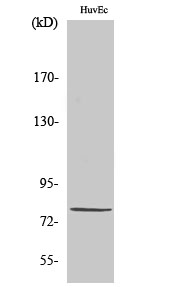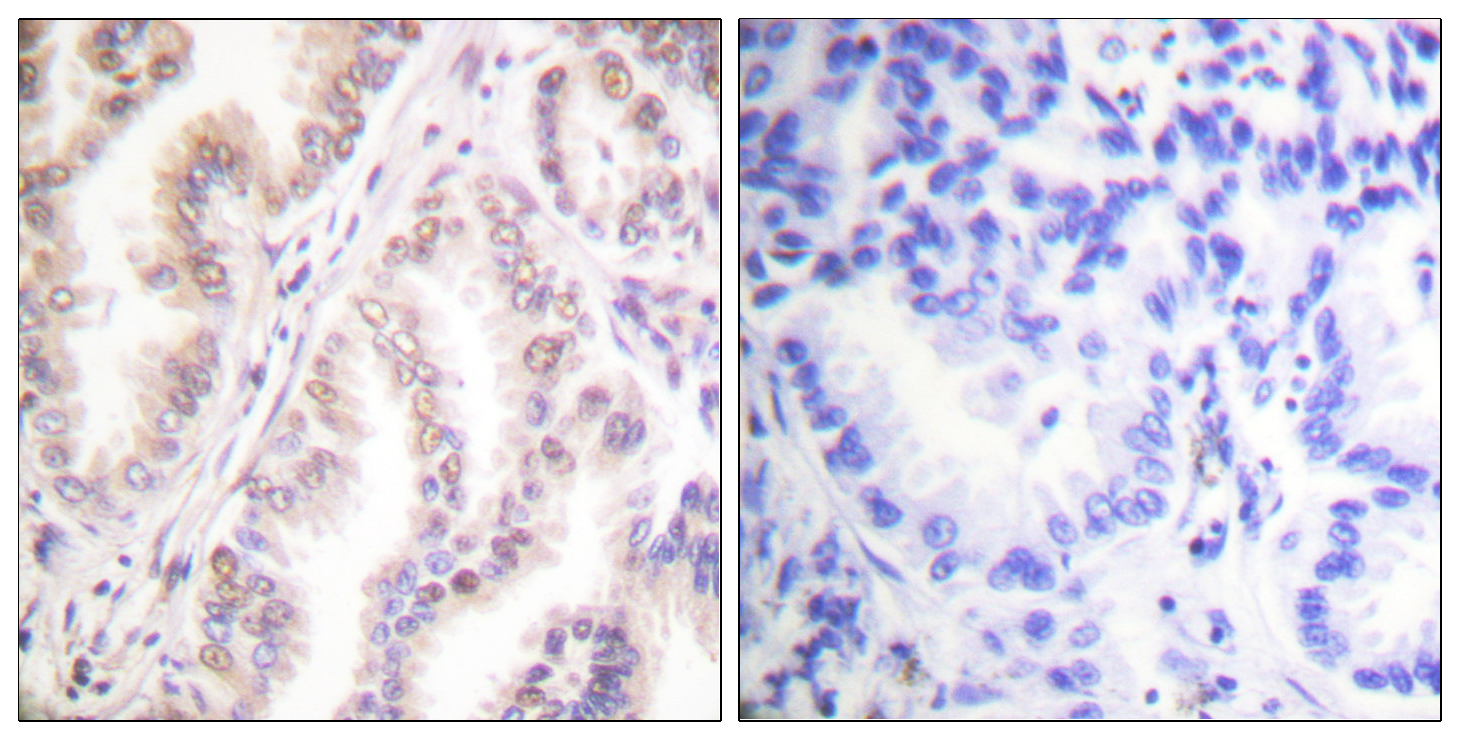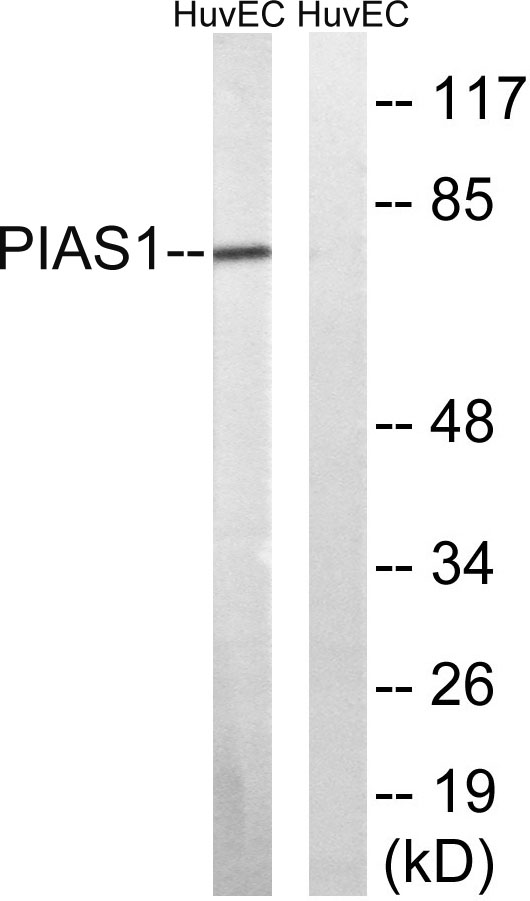PIAS 1 Polyclonal Antibody
- Catalog No.:YT3717
- Applications:WB;IHC;IF;ELISA
- Reactivity:Human;Mouse
- Target:
- PIAS1
- Fields:
- >>Ubiquitin mediated proteolysis;>>JAK-STAT signaling pathway;>>Hepatitis C
- Gene Name:
- PIAS1
- Protein Name:
- E3 SUMO-protein ligase PIAS1
- Human Gene Id:
- 8554
- Human Swiss Prot No:
- O75925
- Mouse Gene Id:
- 56469
- Mouse Swiss Prot No:
- O88907
- Immunogen:
- The antiserum was produced against synthesized peptide derived from human PIAS1. AA range:10-59
- Specificity:
- PIAS 1 Polyclonal Antibody detects endogenous levels of PIAS 1 protein.
- Formulation:
- Liquid in PBS containing 50% glycerol, 0.5% BSA and 0.02% sodium azide.
- Source:
- Polyclonal, Rabbit,IgG
- Dilution:
- WB 1:500 - 1:2000. IHC 1:100 - 1:300. ELISA: 1:10000.. IF 1:50-200
- Purification:
- The antibody was affinity-purified from rabbit antiserum by affinity-chromatography using epitope-specific immunogen.
- Concentration:
- 1 mg/ml
- Storage Stability:
- -15°C to -25°C/1 year(Do not lower than -25°C)
- Other Name:
- PIAS1;DDXBP1;E3 SUMO-protein ligase PIAS1;DEAD/H box-binding protein 1;Gu-binding protein;GBP;Protein inhibitor of activated STAT protein 1;RNA helicase II-binding protein
- Observed Band(KD):
- 72kD
- Background:
- This gene encodes a member of the protein inhibitor of activated STAT (PIAS) family. PIAS proteins function as SUMO E3 ligases and play important roles in many cellular processes by mediating the sumoylation of target proteins. This protein plays a central role as a transcriptional coregulator of numerous cellular pathways includign the STAT1 and nuclear factor kappaB pathways. Alternate splicing results in multiple transcript variants. [provided by RefSeq, Mar 2016],
- Function:
- domain:The LXXLL motif is a transcriptional coregulator signature.,domain:The SP-RING-type domain is required for promoting EKLF sumoylation.,function:Functions as an E3-type small ubiquitin-like modifier (SUMO) ligase, stabilizing the interaction between UBE2I and the substrate, and as a SUMO-tethering factor. Plays a crucial role as a transcriptional coregulation in various cellular pathways, including the STAT pathway, the p53 pathway and the steroid hormone signaling pathway. The effects of this transcriptional coregulation, transactivation or silencing, may vary depending upon the biological context.,pathway:Protein modification; protein sumoylation.,PTM:Sumoylated.,similarity:Belongs to the PIAS family.,similarity:Contains 1 SAP domain.,similarity:Contains 1 SP-RING-type zinc finger.,subcellular location:Interaction with CSRP2 may induce a partial redistribution along the cytoskele
- Subcellular Location:
- Nucleus speckle . Nucleus, PML body . Interaction with CSRP2 may induce a partial redistribution along the cytoskeleton.
- Expression:
- Expressed in numerous tissues with highest level in testis.
- June 19-2018
- WESTERN IMMUNOBLOTTING PROTOCOL
- June 19-2018
- IMMUNOHISTOCHEMISTRY-PARAFFIN PROTOCOL
- June 19-2018
- IMMUNOFLUORESCENCE PROTOCOL
- September 08-2020
- FLOW-CYTOMEYRT-PROTOCOL
- May 20-2022
- Cell-Based ELISA│解您多样本WB检测之困扰
- July 13-2018
- CELL-BASED-ELISA-PROTOCOL-FOR-ACETYL-PROTEIN
- July 13-2018
- CELL-BASED-ELISA-PROTOCOL-FOR-PHOSPHO-PROTEIN
- July 13-2018
- Antibody-FAQs
- Products Images

- Western Blot analysis of various cells using PIAS 1 Polyclonal Antibody cells nucleus extracted by Minute TM Cytoplasmic and Nuclear Fractionation kit (SC-003,Inventbiotech,MN,USA).

- Immunohistochemistry analysis of paraffin-embedded human lung carcinoma tissue, using PIAS1 Antibody. The picture on the right is blocked with the synthesized peptide.

- Western blot analysis of lysates from HUVEC cells, using PIAS1 Antibody. The lane on the right is blocked with the synthesized peptide.



